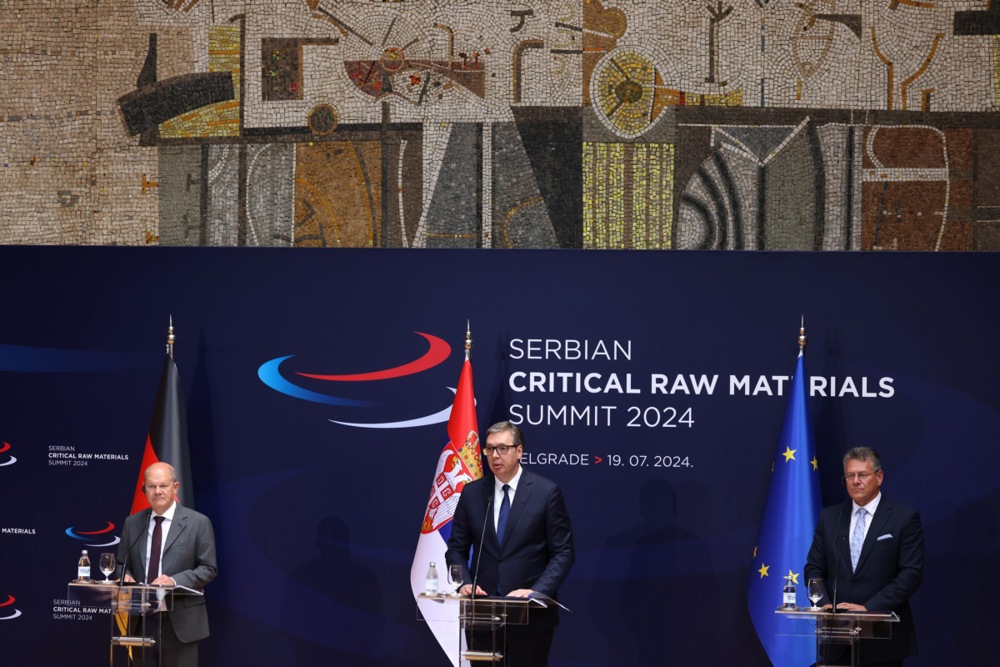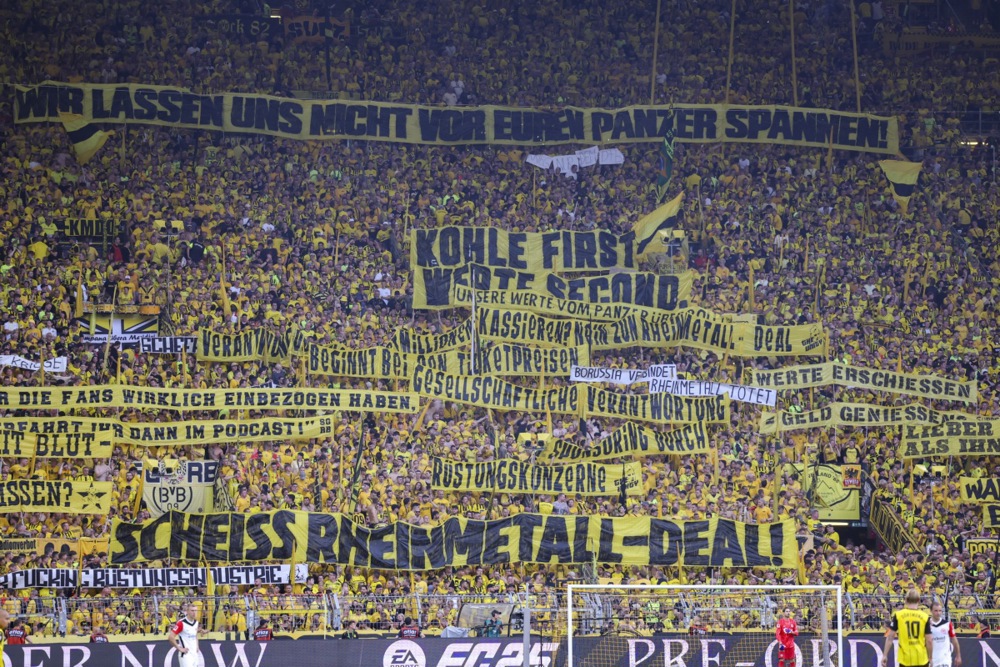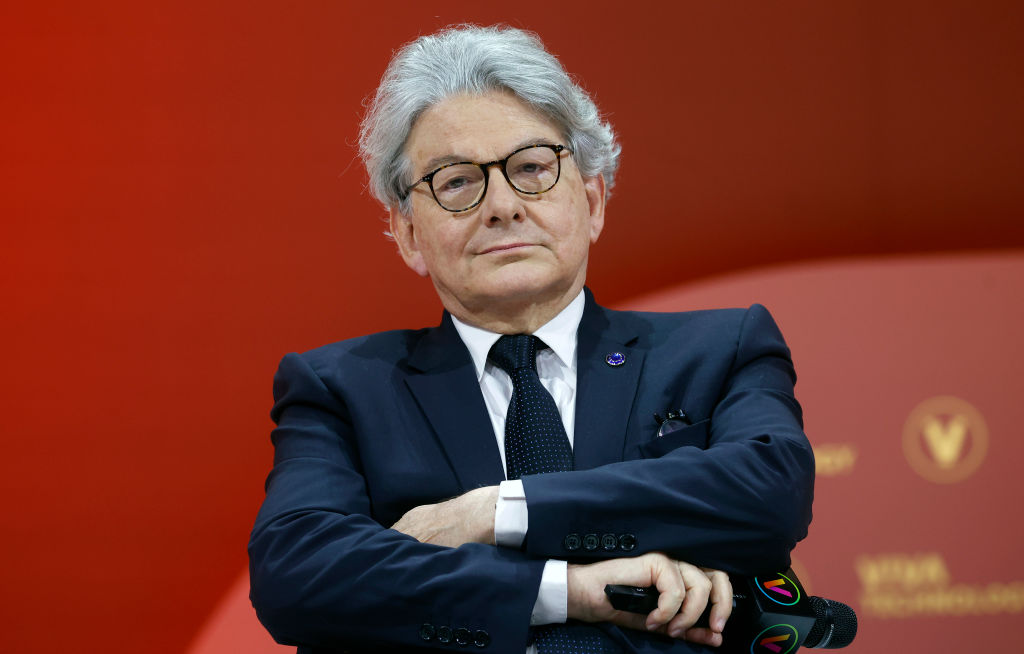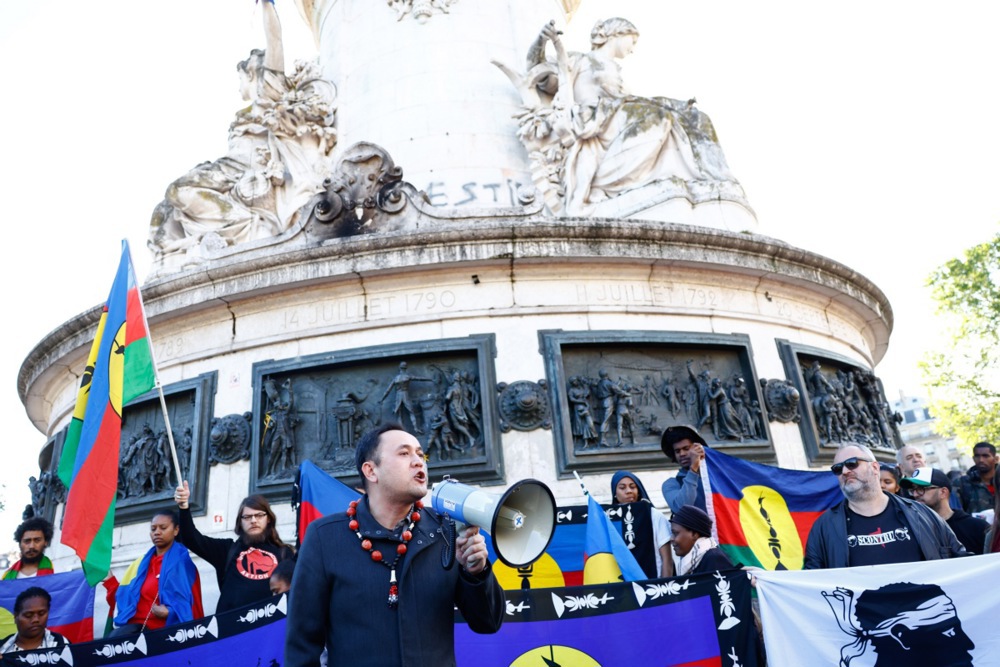Serbia has inked a historic deal with French company Dassault Aviation to buy 12 Rafale fighter jets for a total of €2.7 billion.
Both countries signed the agreement during a State visit by President Emmanuel Macron to Belgrade, AP reported on August 30.
Serbia will get nine single-seat and three two-seat Dassault-built jets by 2029, a modernisation of its ageing Soviet-era combat jets.

“We are happy to become part of the Rafale club. We thank the president of France for making this decision and for enabling us to purchase the new Rafales,” Serbian President Aleksandar Vučić told the media during the signing ceremony.
“The total value of the contract is €2.7 billion, and 12 new aircraft will be owned by the Republic of Serbia,” he said.
Vučić emphasised the significance of France’s increasing investments in Serbia, mentioning collaborations in various sectors such as defence, artificial intelligence, IT, nuclear energy and education.
Macron described the jet deal as “historic and important,” praising Serbia’s “strategic courage”, and spoke of a “long-term alliance between our two countries within a stronger and more sovereign Europe”.
Le choix des Rafale par la Serbie est celui d’une alliance de long terme entre nos deux pays au sein d’une Europe plus forte et plus souveraine. pic.twitter.com/W85ur5lmr8
— Emmanuel Macron (@EmmanuelMacron) August 29, 2024
“The European Union needs a strong and democratic Serbia at its side and Serbia needs a strong, sovereign Europe to defend its interests,” Macron said. ″Serbia’s place is in the EU, and it has a role to play to be an example for all the region.”
He also highlighted the role of French companies in major Serbian infrastructure projects, such as the Belgrade Metro, currently under construction, and the modernisation of the Nikola Tesla Airport in the capital.
Next to the fighter-jet deal, Serbia and France signed 10 other agreements, including on raw materials and a civil nuclear programme.
Vučić underscored the importance of what he called the pragmatic and rational approach to Serbia’s EU integration, acknowledging that membership might not be imminent but it remained a strategic goal for the country.
Serbia and the European Union have developed a complex relationship in recent years. Both want Serbia in the EU but the Balkan country has a poor relationship with Kosovo, which it considers part of its own, and has tended to utilise its Russian and Chinese ties.
With the fighter deal, there were concerns about how France planned to prevent sophisticated Rafale technology from being shared with Russia.
In response, Macron said the aircraft agreement included ″full guarantees, like any defence agreement”.
The EU-Serbia lithium deal, aimed at reducing Chinese influence, faces sharp criticism over Serbia’s rule of law issues and the EU’s perceived prioritisation of resource acquisition over democracy and governance concerns. https://t.co/UmVBQM5q2J
— Brussels Signal (@brusselssignal) August 5, 2024
When a reporter questioned Vucic about whether the jet sale showed Serbia moving away from Moscow and closer to the EU, he said that, although he was aware Macron would prefer it if Belgrade committed to imposing sanctions on Moscow, that would not happen.
“I know that Emmanuel would like us to impose sanctions on Russia, but I am not ashamed of my decision,” the Serbian President stated.

Vucic added that Serbia respected Ukraine’s territorial integrity and regarded it as a friendly country. That was despite Serbia having chosen not to abide by Western sanctions following the start of the Ukraine-Russia war. He said that, since then, Belgrade had given Kyiv more humanitarian aid than all the other Balkan governments put together.
In April, leaked US intel documents claimed that Serbia had agreed to help arm Ukraine, despite Belgrade’s professed neutrality.
Earlier in August, Nenad Popović, Serbia’s international economic co-operation minsiter, insisted that the country pursued a multi-vector foreign policy. The country sought to strengthen its ties with Europe, Asia and the Islamic world, he said, with EU accession being a key priority given Serbia’s geographic position, surrounded by EU Member States and candidates.
Popović did make it clear that Brussels’ demand for Serbia to impose sanctions on and sever all ties with Russia was “utterly unacceptable”.
Why is the position of the European Union with Serbia so delicate?
Watch the full interview with @fbieber ?? https://t.co/CKseRFdFwD
#europeanunion #serbia pic.twitter.com/6aSSVfesK6
— Brussels Signal (@brusselssignal) August 9, 2024





